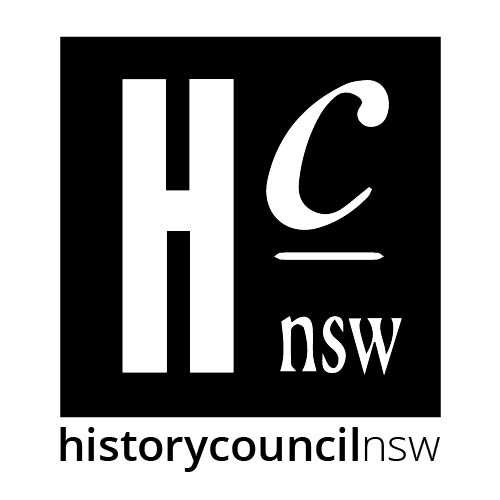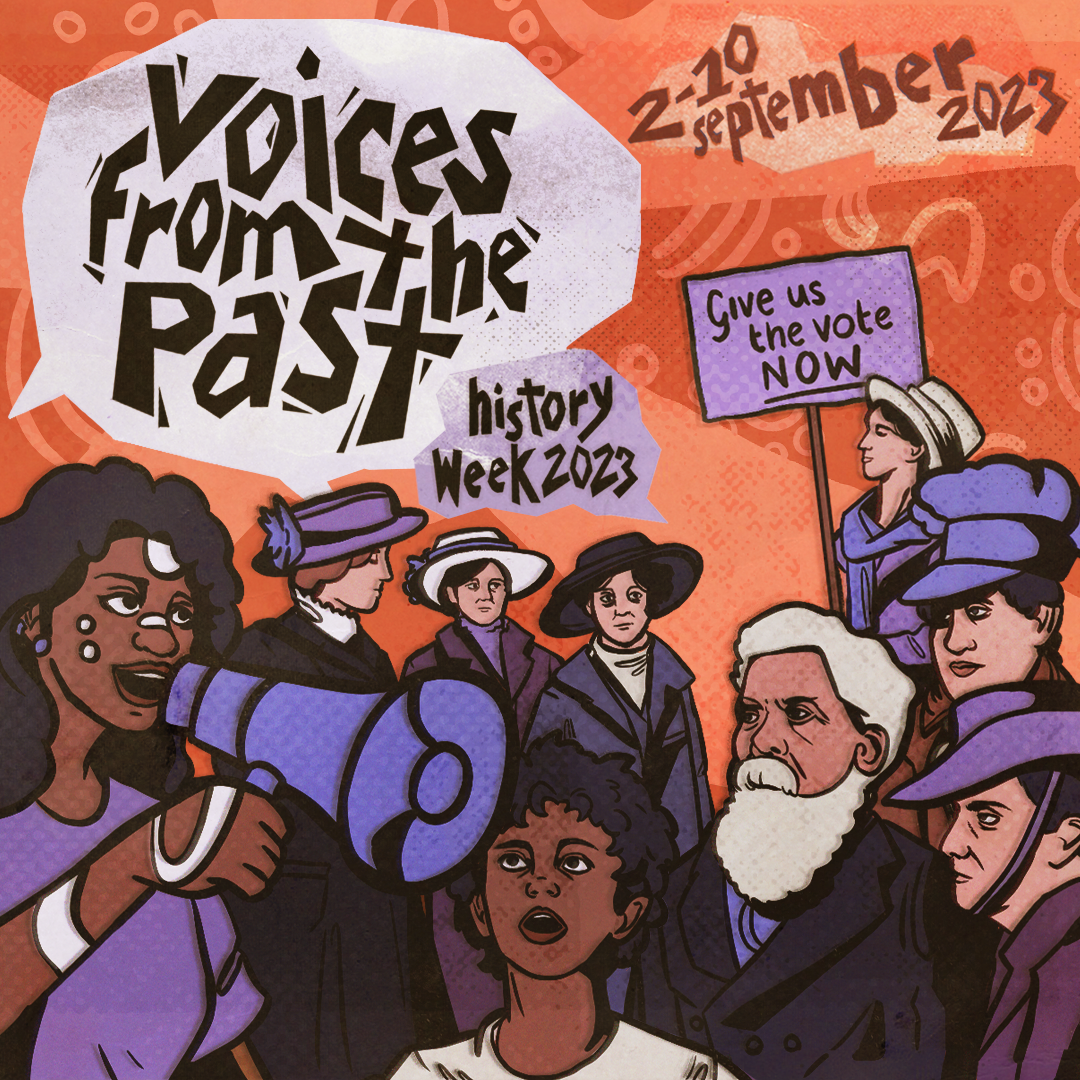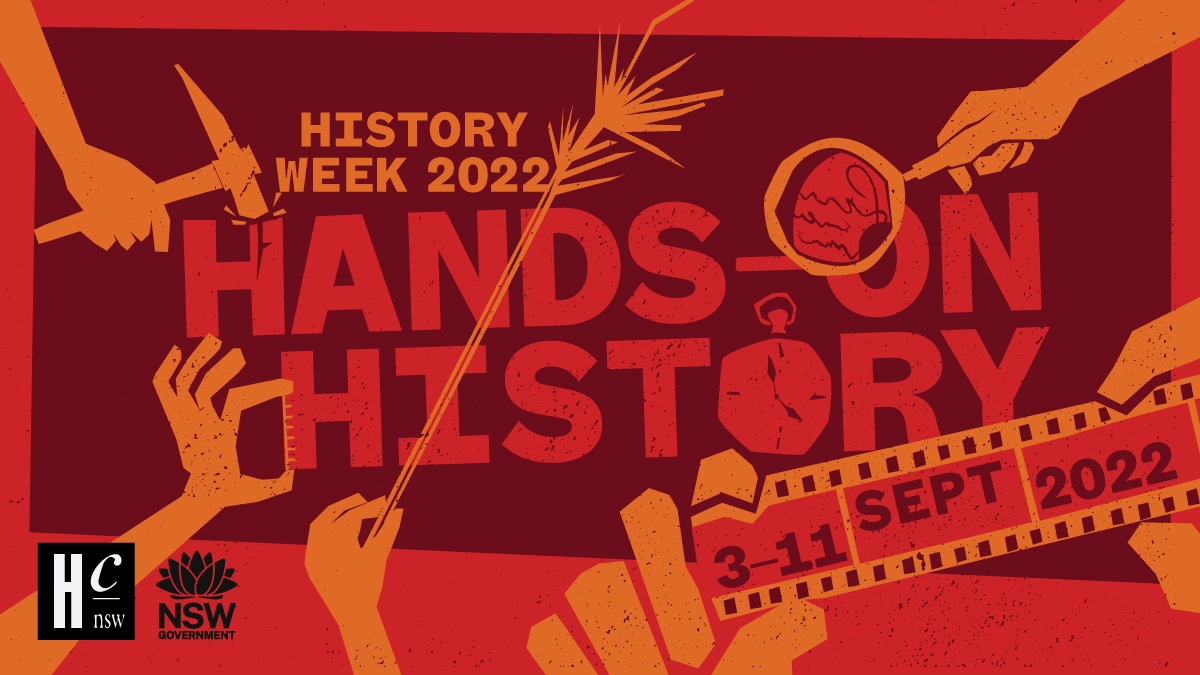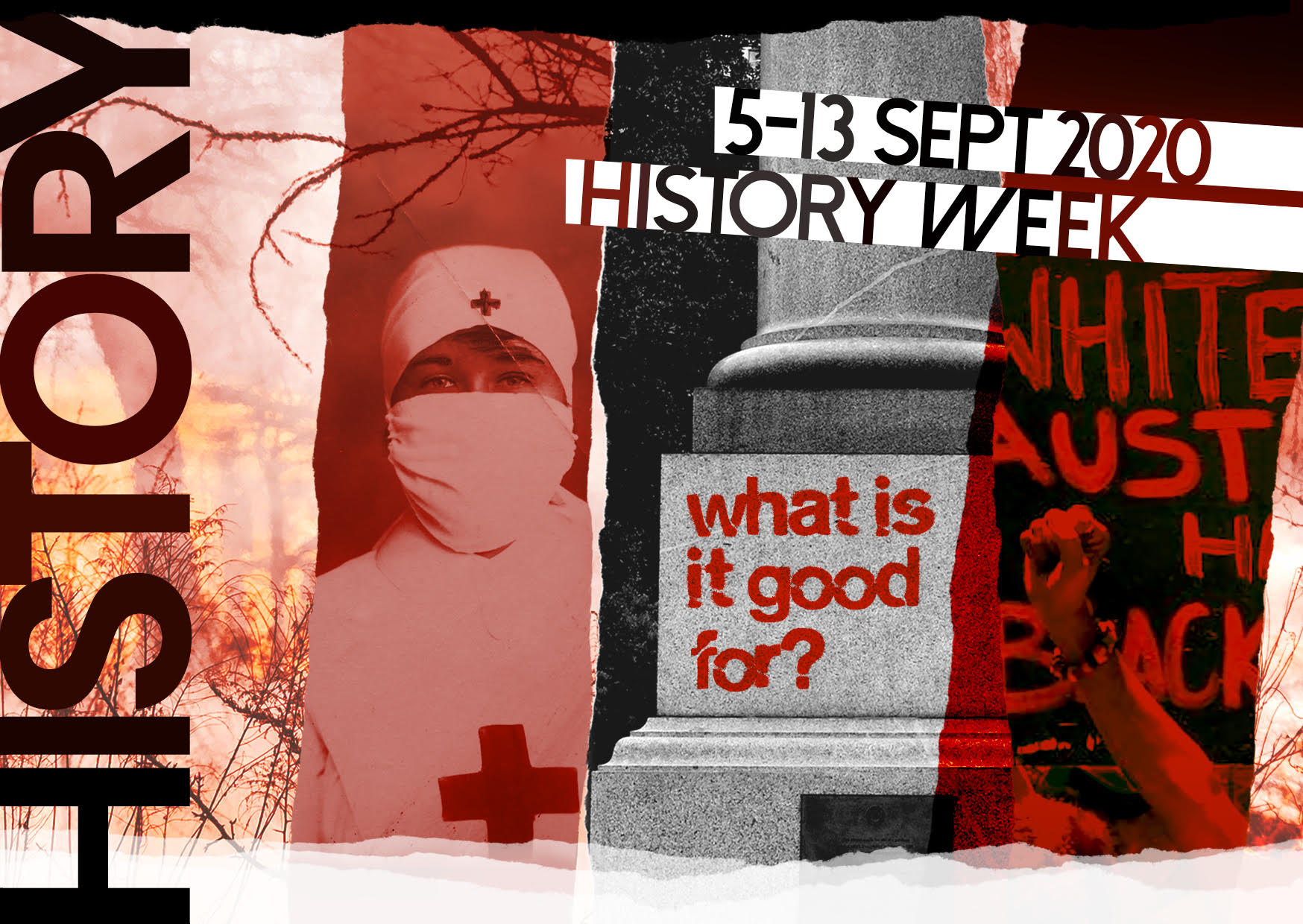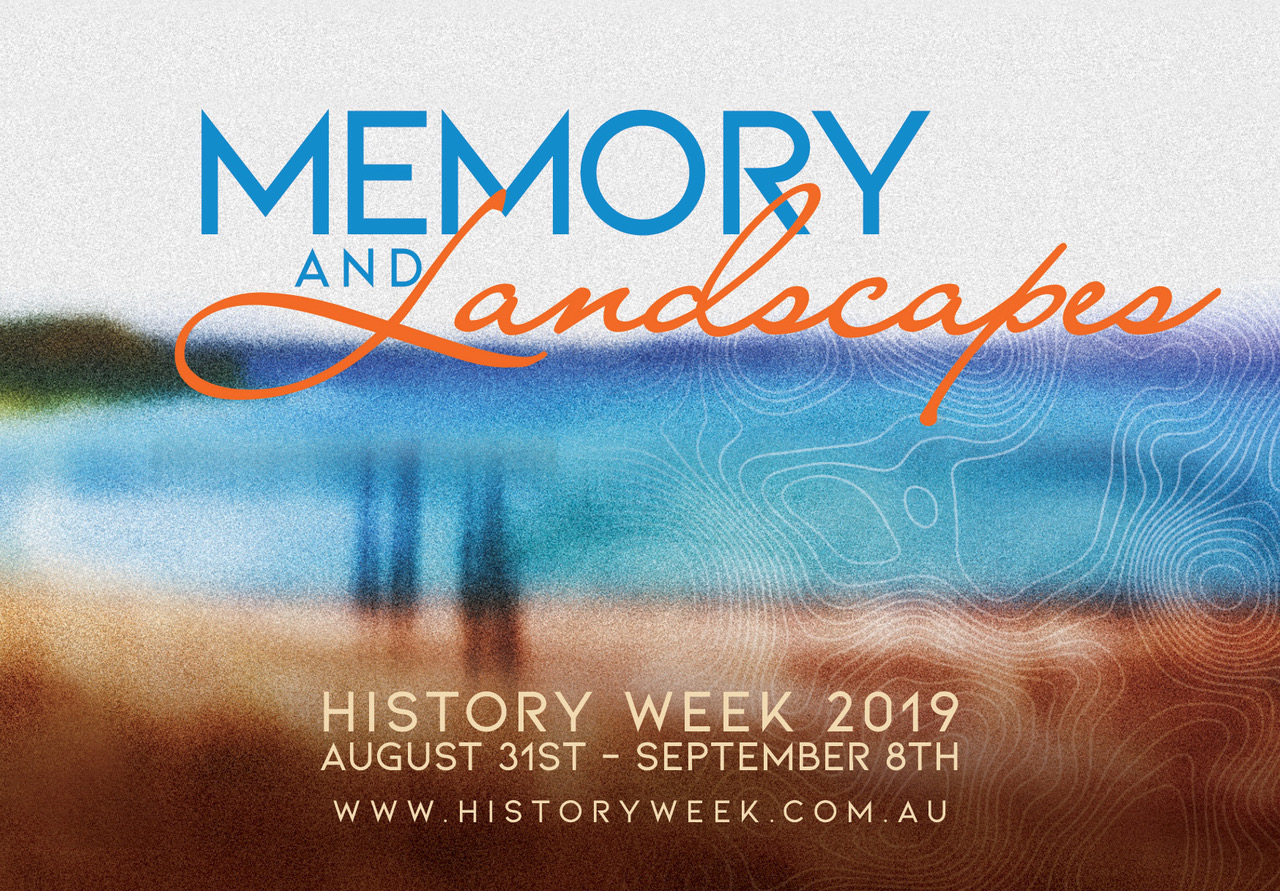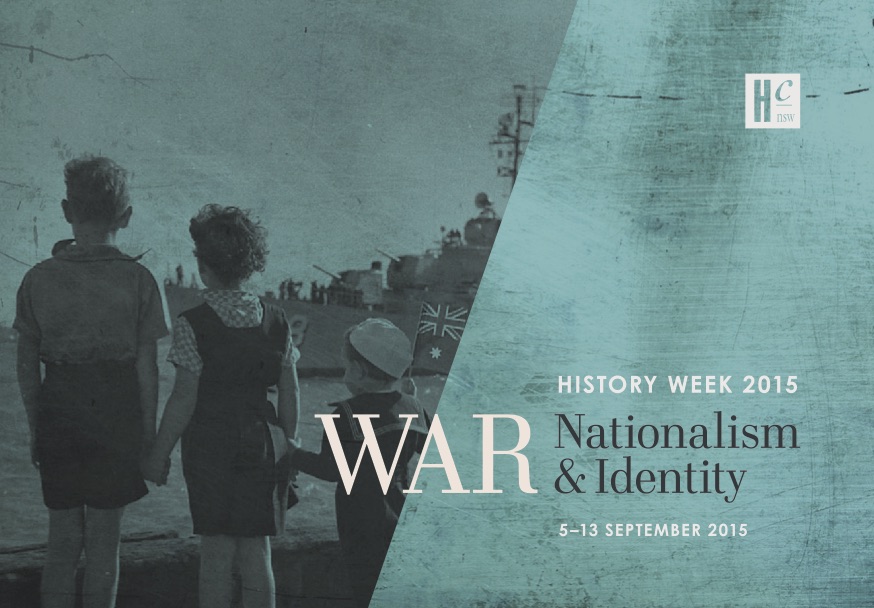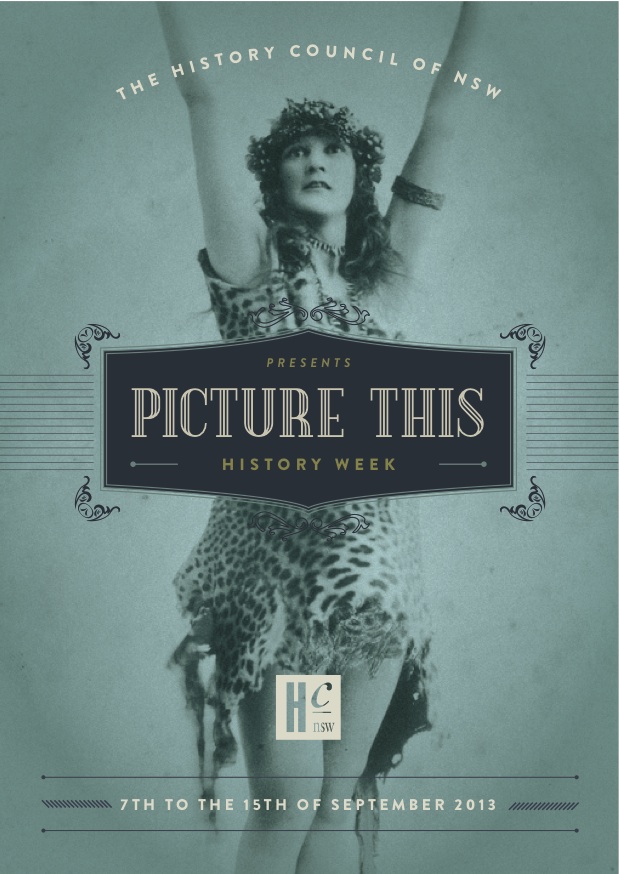History Week – General Information
History Week is the annual, state-wide celebration of History organised by the History Council of New South Wales.
Initiated by the HCNSW in 1997, History Week is a fantastic opportunity for member organisations, large and small, throughout NSW to engage and educate the community about the vitality, diversity and meaning of History and its practice.
Please refer to the Annual Report on the right-hand side of this page for details of this series of events and their outcomes.
What happens in History Week?
Members apply through the HCNSW to host History events relating to the annual theme. Previous events have included talks and lectures, behind the scenes tours and heritage trails, exhibitions and radio features, film festivals, open historic houses and gardens, book sales and launches.
In 2024, History Week will be launched on Friday 6 September during the NSW Premier’s History Awards, an event run in partnership with the State Library of NSW. A further feature event of History Week is the Annual History Lecture and Awards planned during History Week. Overall, there will be close to 80 – 100 events being staged throughout NSW in History Week 2024.
How can members be involved in History Week?
You and your organisation can take advantage of the week and promote your organisation by hosting an event that you create, by hosting a History speaker through our Speaker Connect program and/or attending the NSW Premier’s History Awards at the State Library of NSW and the History Council’s Annual History Lecture and Awards. Your event will form part of the HCNSW’s media campaign and be promoted in the History Week Program Calendar on our website, an example of which can be seen on the right of this page.
History Week Themes
Each year, the History Council of NSW selects a theme for History Week. Here is a list of our themes since 2001:
|
2024 |
Marking Time |
|
2023 |
Voices from the Past |
|
2022 |
Hands-on History |
|
2021 |
From the Ground Up |
|
2020 |
History: What is it good for? |
|
2019 |
Memory & Landscape |
|
2018 |
Life & Death |
|
2017 |
Pop! |
|
2016 |
Neighbours |
|
2015 |
War, Nationalism and Identity |
|
2014 |
The Great War |
|
2013 |
Picture This |
|
2012 |
Threads |
|
2011 |
Eat History |
|
2010 |
Faces in the Street |
|
2009 |
Scandals, Crime and Corruption |
|
2008 |
The Water’s Edge |
|
2007 |
Legacies |
|
2006 |
Transform |
|
2005 |
History and Fiction |
|
2004 |
Links in Time |
|
2003 |
Minding the Past |
|
2002 |
Changing Landscapes |
|
2001 |
Journeys and Pathways |
Further questions about History Week?
More information is available through our frequently asked questions to the right, the relevant History Week page for the year, or contact us at programs@historycouncilnsw.org.au.
Do I have to be a History Council member to participate?
History Week events are open to the public. However, all organisations or individuals wishing to host a History Week event or take part in the History Week Speaker Connect program must be current members of the History Council of NSW. The History Council relies on the financial support of its members to deliver its annual programs. Apply to become a member here.
What makes a successful History Week event?
Successful History Week events:
- relate to or incorporate the History Week theme
- select a running time most appropriate for the target audience (for example, many students, full-time workers and young people are unable to attend events scheduled during the day. We advise hosts to consider running an event outside of regular office hours to attract wider audiences)
- select a format most appropriate for the target audience (for example a lecture, exhibition, interactive experience etc)
- are well and consistently promoted at least one month in advance and across a variety of channels, in addition to the History Council of NSW’s online channels
- have a clear, concise and engaging event description, along with an eye-catching and relevant feature image, which entices audiences to attend
- include clear instructions on how attendees can book or register for the event, whether this be through an online booking system, or via a contact email or phone number.
What is the History Week event registration process?
- All History Week event registrations must be made through our online registration forms available on the relevant History Week year page
- Registrations will be processed as they are received. You will be sent a confirmation email with your registration details. The contact person listed on the registration form will be the primary liaison with our staff
- Changes to any of these details must be sent immediately to our staff at programs@historycouncilnsw.org.au
- After registrations close (end of June), our staff will begin to post events on the HCNSW History Week website, starting with Speaker Connect events. A downloadable program will also be made available
- Events will be circulated and advertised throughout the months of July and August. Event hosts are strongly encouraged to advertise their selected event through a variety of their own channels in addition to our channels
- After History Week, event hosts will be approached to provide feedback on their experience of the event and its organisation and promotion. Detailed and specific feedback is greatly appreciated
- We will release a History Week report for download on our website.
Do you have a media pack and guide?
We have made a media pack available for our host organisations to assist in publicity. Download our logo, publicity guide and media release template below. Once artwork has been completed for a History Week theme, that will also be made available on the relevant History Week year page.
HCNSW logo (jpeg 62kb)
Publicity guide (pdf 172kb)
Please contact us at programs@historycouncilnsw.org.au for assistance.
How does the Speaker Connect program fit into History Week?
The Speaker Connect program is run all year round. During History Week, we encourage Speakers to apply to give a presentation focused on the annual History Week theme. Applications for Speaker Connect are via the web form on that page.
Contact Us
